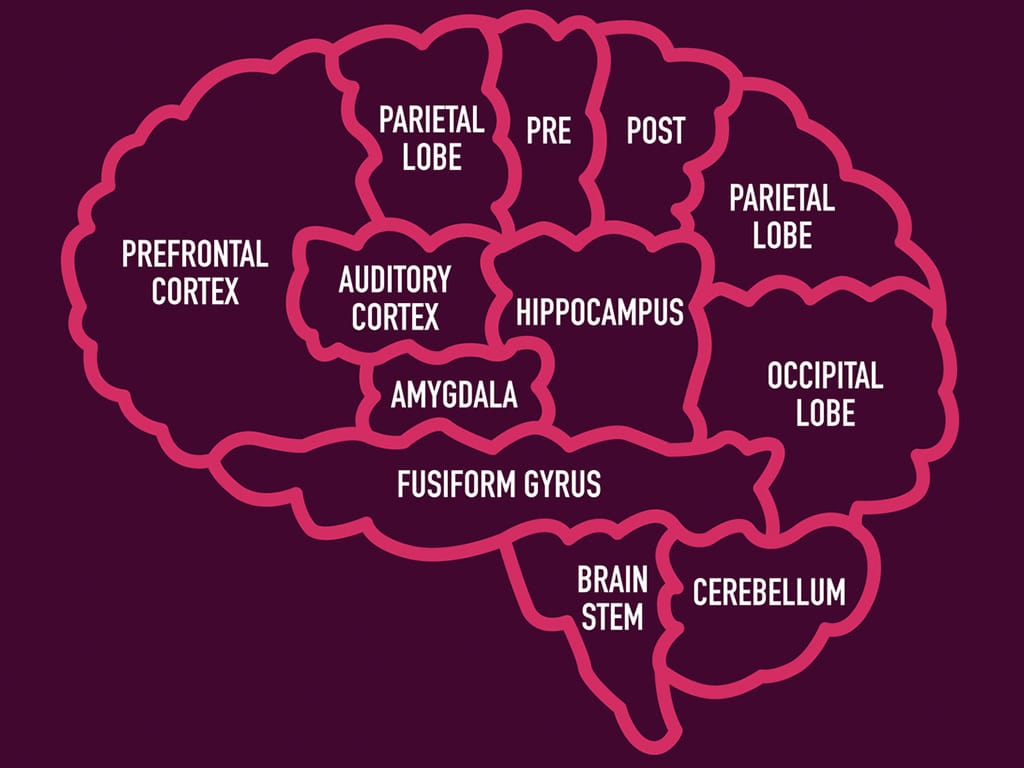
The answer to this question is complex – but we are going to do our best to break it down for you. It all starts with the prefrontal cortex.
 The Prefrontal Cortex Unveiled:
The Prefrontal Cortex Unveiled:
Situated at the front of the brain, the prefrontal cortex is our neural command center for decision-making, planning, emotional regulation, and complex cognitive functions. It acts as a conductor, guiding our responses to stressors and challenges.
When anxiety clouds the mind, the prefrontal cortex may face challenges in carrying out its executive functions. Research shows us that heightened anxiety decreases the prefrontal cortex’s ability to make rational decisions, leading to impulsive choices and increased emotional reactivity.
The Role of Therapy for Anxiety in Prefrontal Cortex Function:
Effective therapy for anxiety seeks to address the impact of anxiety on the prefrontal cortex. By employing evidence-based techniques such as cognitive-behavioral therapy (CBT), therapists work to reframe thought patterns and enhance the prefrontal cortex’s ability to regulate emotions and make sound decisions.
Therapy for anxiety takes advantage of the brain’s remarkable ability to adapt and change, known as neuroplasticity. By engaging in therapeutic interventions, individuals can strengthen the neural pathways in the prefrontal cortex, fostering resilience against the disruptive influence of anxiety.
 Mindfulness practices incorporated into therapy for anxiety can be particularly beneficial. These techniques encourage individuals to stay present and non-judgmentally observe their thoughts and emotions, promoting a more balanced and effective functioning of the prefrontal cortex.
Mindfulness practices incorporated into therapy for anxiety can be particularly beneficial. These techniques encourage individuals to stay present and non-judgmentally observe their thoughts and emotions, promoting a more balanced and effective functioning of the prefrontal cortex.
In some cases, medication may be a component of therapy for anxiety. Certain medications work by modulating neurotransmitters, influencing the prefrontal cortex’s function and improving its capacity to regulate emotions and decision-making processes.
Empowering Decision-Making Through Therapy for Anxiety:
As individuals engage in therapy for anxiety, they begin a journey of self-discovery and empowerment. The therapeutic process guides them towards understanding and managing anxiety, ultimately restoring the prefrontal cortex’s role as a beacon of thoughtful decision-making.
In the world of mental health and understanding how your brain and body work together, the prefrontal cortex stands as a key player in the realm of decision-making. Through targeted therapy for anxiety, individuals can reclaim control over their minds, fostering a harmonious relationship between the prefrontal cortex and emotional well-being. As we unravel the mysteries of the mind, therapy for anxiety emerges as a guiding light, illuminating the path toward empowered decision-making and lasting mental health.
Think you might be ready for some therapy for anxiety?
